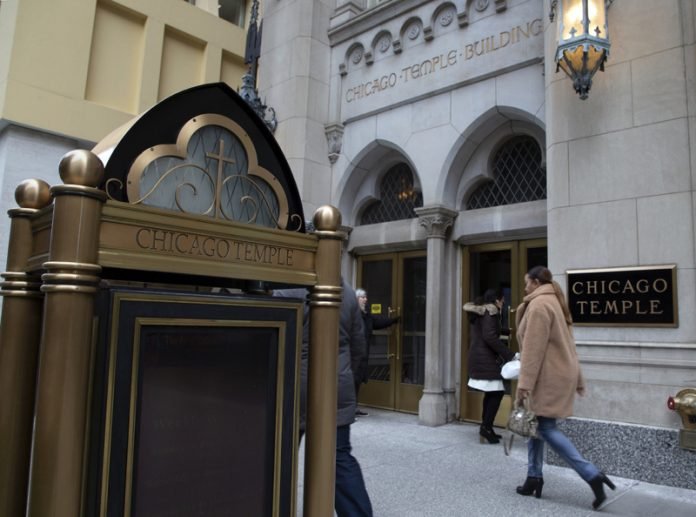
By Theresa Kef
A controversial development within the United Methodist Church in the United States is to debate splitting in two after members and ministers were unable to resolve their differences over gay marriage and gay ordination. Sierra Leone’s United Methodist Church Bishop Yambasu stated a strong position.
He said : “All of us are servants of the church and realise that we are not the primary decision makers on these matters. Instead, we humbly offer to the delegates of the 2020 General Conference the work which we have accomplished in the hopes that it will help heal the harms and conflicts within the body of Christ and free us to be more effective witnesses to God’s Kingdom.”
Church representatives on both sides of the debate over human sexuality have drawn up an eight-page “Protocol of Reconciliation and Grace Through Separation” which would mean legislation being put to this year’s General Conference to institute formal schism.
Division of assets has been agreed. Assuming it goes through, each Methodist congregation in the denomination, which has more than 13 million members worldwide, with roughly half these in the US, will have to vote if members wish to join the new conservative Methodist church resulting from the split.
The plan will lead to the formation of a new traditionalist Methodist denomination, which will be given $25 million over the next four years by the post-split United Methodist Church.
In a statement, the Church’s Council of Bishops said the action “comes amid heightened tensions in the church over conflicting views related to human sexuality”. An attempt to resolve the issues at a special session of the conference last year ended in failure.
Most support for a progressive direction comes from US Methodists, with the bulk of the opposition from countries such as those in the Global South, religious demographic also reflected in debates in the Anglican Communion on the same issues.
The 16-strong group that drew up the protocol used mediation and dispute resolution techniques before finalising the new plans, with pro-bono advice given by attorney Kenneth Feinberg, who served as special master of the 9/11 Victim Compensation Fund and also as administrator of the BP Deepwater Horizon Disaster Victim Compensation Fund.
The protocol states: “The undersigned propose restructuring The United Methodist Church by separation as the best means to resolve our differences, allowing each part of the Church to remain true to its theological understanding, while recognising the dignity, equality, integrity, and respect of every person.”
The protocol is signed by representatives from Europe, Africa, the Philippines and the US.
The bishops said: “An additional $2 million would be allocated for potential additional new Methodist denominations which may emerge from the UMC. Acknowledging the historical role of the Methodist movement in systematic racial violence, exploitation and discrimination, the Protocol would allocate $39 million to ensure there is no disruption in supporting ministries for communities historically marginalised by racism.
“Under the Protocol, conferences and local congregations could vote to separate from the United Methodist Church to affiliate with new Methodist denominations created under the agreement within a certain time frame. Churches wishing to stay within the UMC would not be required to conduct a vote. Provisions exist for entities that choose to separate to retain their assets and liabilities.”
In the meantime, states the Protocol, “all administrative or judicial processes addressing restrictions in the Book of Discipline related to self-avowed practising homosexuals or same-sex weddings shall be held in abeyance.”
The schism plan was greeted with comment from both sides on Twitter. Ibram X Kendi, director of the Anti-Racism Centre in Washington, tweeted: “This makes me recall when Christian denominations split over slavery before emancipation. How do the pro-slavery denominations look today? The same way the so-called ‘traditionalist Methodist’ church looks today and will certainly look 100 years from now.”
Andrew T. Walker, professor at the Southern Baptist Seminary, tweeted: “Though tragic, this is inevitable and necessary. Faithfulness and unfaithfulness cannot coexist. It is not the “traditionalists” who are being schismatics. Those abandoning Scripture, reason, nature, and history are the ones being divisive.”



